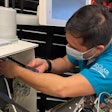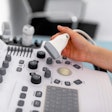
Much has been written in the Forums on AuntMinnie.com about why radiologists are unhappy. Increasing volume. Cuts in reimbursement. Busier days. Difficult job market.
These trends all have some truth and are largely outside the control of any individual radiologist. There is no question that radiologists are less happy now than in the past. But I find that dwelling on things outside of our control is disempowering and leads to self-pity.
We do have a choice of what jobs we pursue. Discussions of what a "good job" is tend to focus on income, vacation, and work volume.
When I ponder what a "good job" means to me, the above three factors are not the first things that come to mind, though they are important (especially moderate work volume). Rather, I think about the things that are most important to my happiness.
I consider a good job in radiology one that allows you to achieve a reasonable degree of satisfaction in all of the following categories, where high marks in one category cannot compensate for a deficiency in another:
- Satisfaction in your daily work life and level of morale
- Satisfaction in your professional and career development, be it clinical, administrative, research, or whatever combination
- Satisfaction in the relationships you develop at work, be it with fellow radiologists, technologists, clinicians, or even the nice lady who takes my trash every morning
- Satisfaction in your health and general sense of well-being
- Satisfaction in your family or home life
- Satisfaction in your ability to cultivate and develop your interests outside of medicine, be it a hobby or something else
- Satisfaction in your current material needs
- Satisfaction in your ability to plan for your future needs
Yet a number of obstacles stand in the way of achieving happiness in radiology. While I'm no psychiatrist, here's my take on what they are:
Overemphasis on salary and vacation in the job hunt, instead of focusing on job quality, people quality, and group work culture. The latter will determine your happiness more than the former.
Unrealistic expectations of the type of material lifestyle you can afford, i.e., trying to match the homes, cars, and vacations of most other physicians -- and the resulting anxiety when the numbers don't add up. This forces you to work overtime to pay the mortgage on a house and leases on cars that you can't afford.
The assumption that work must be painful, and therefore you should maximize productivity at work to maximize partner vacation time, which is when you hope to truly "live." When your work is reasonable and somewhat enjoyable, you don't feel a dire need for vacation.
Not trying to cultivate your enjoyment of radiology. It's what we do with much of our time; liking it should be a priority.
Not having a specific plan for professional/career growth, whether this means becoming a more knowledgeable radiologist, a better clinician, a radiology group/hospital leader, an accomplished author, etc.
Failure to invest in relationships at work. The greatest secret to making friends is to be willing to show your friendship first, whether with a smile, a compliment, or treating someone to coffee or a meal. These small investments will be repaid to you in spades and will bring you more happiness than that black BMW M5 or Tesla. Ask me how I know. (Yes, I sold it.)
Failure to give priority -- and protected time -- to other things in life. Buying the spouse flowers on the way back from work every few weeks; lunch with aging parents; flying a kite on Sunday mornings with your son: These should be recurring events on your calendar in the same way that partner meetings or radiation safety meetings are, and nothing should be allowed to squeeze these "small" things out of your schedule. Give them the priority you know they deserve.
Seeking pleasure in owning/acquiring rather than doing/experiencing. It's more enjoyable to spend $800 to take a one-week bicycle mechanic's course -- and spend more time riding a basic road bike -- than to spend $4,000 more to get the high-end, carbon-frame road bike and expensive components that will just collect dust in the garage. Make art, don't collect it.
Forgetting to maintain the most valuable piece of machinery you own: you. If you had a Ferrari, you would baby it and make sure everything is oiled and maintained. Your person -- i.e., your body and mind -- is the most valuable piece of operational machinery you have. It can generate a ton of income over the next 30 years. It can bring much joy and benefit to those around you, especially your patients. Maintaining your own wellness is not a luxury, it's a necessity. That refers to getting enough sleep; being in good physical shape; and being of sound mind, unperturbed by unnecessary stressors, with plenty of reserve capacity to deal with whatever challenges arise each day.
Fear of poverty. Why someone who makes $200,000 a year -- or more -- should fear poverty is beyond me. Nothing is guaranteed in life except death and taxes, so, sure, you could be Warren Buffett and somehow end up on the street. But fearing it is something else. Dangers are outside you, but the fear is in your head. Live within your means, enjoy things that do not break your budget, plan for the future, and remind yourself that you make a choice every day to go to work: You are not a slave to your bills, nor will you become homeless if you decide today that you want to walk away from a bad job situation. And no, you do not need $1 million saved up in cash to walk away from a bad job. Compared with other humans on this planet, you are relatively powerful and capable, and there is no reason to disempower yourself in your head, such that you feel locked into anything.
Finally, a few parting thoughts ...
Keep the money in your hand -- to do things with -- and not in your heart. Don't worry, there is enough.
Be passionate about whatever you are doing. Life is too short just to go through the motions. If you must do it, then fully own it and take pride in it.
If you can't go to where you love, then find ways to love where you are.



















